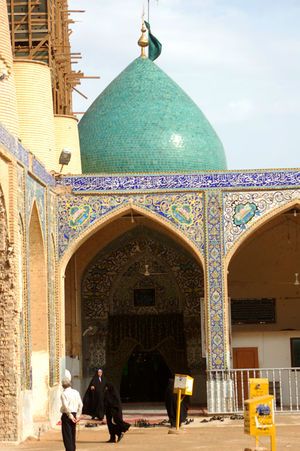Hani’s refusal to capitulate to the oppressive forces of Yazid Ibn Muawiya further solidified his legacy within the Shia narrative. In the face of coercion and intimidation, his unwavering stance symbolized the broader struggle against moral degradation. His life offers profound lessons on the importance of personal sacrifice for communal welfare, reflecting the Shia ideal of martyrdom not solely as a physical act but as a holistic lifestyle committed to virtue, resilience, and societal betterment. The metaphor of martyrdom in Shia thought thus transcends the physical realm, extending into ethical dimensions that resonate with adherents today.
The aftermath of the Battle of Karbala magnifies Hani’s legacy within Shia discourse. His indomitable spirit, characterized by an unyielding defense of Imam Hussein, marked him as a symbol of fidelity to the principles of justice. It is within this context that Hani’s teachings echo the Shia ethos of enjoining good and forbidding evil. His life becomes an allegory for the perennial struggle against oppression, inviting future generations to heed the call of justice, irrespective of the potential costs involved.
The philosophical underpinnings of Hani’s devotion extend into essential Shia doctrines. Central to these is the concept of Imamat, which posits the leadership of the Imams as divinely ordained, thus establishing an unwavering connection between the Shia community and its rightful leaders. Hani’s narrative serves as a conduit for understanding the profound relationship between personal integrity and collective responsibility in Shia thought. This relationship nurtures a sense of communal identity that galvanizes efforts toward social justice, echoing the mantra ‘to be with the truth, even if you stand alone.’
Tags
Share this on:
[addtoany]


